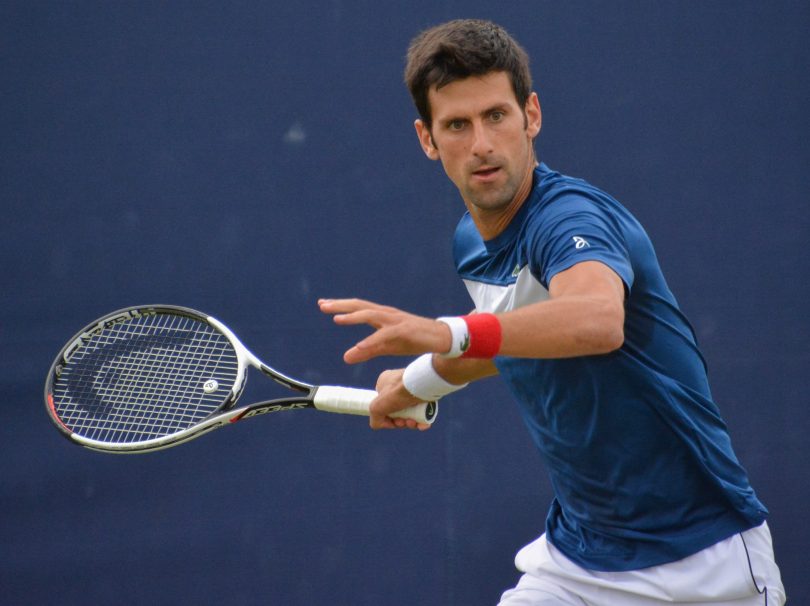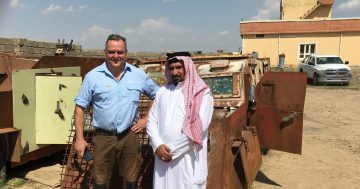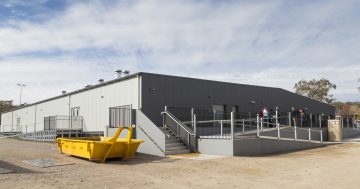
Novak Djokovic has requested more freedoms after entering a 14-day lockdown in Melbourne. Photo: Wiki Commons.
While Novak Djokovic’s demands circulate and capture today’s news about the Australian Open COVID-19 safety measures, Aspen Medical staff will be working hard behind the scenes to manage one of Australia’s biggest and most complex hotel quarantine operations in Melbourne.
More than 100 Aspen Medical staff are now on-site across three designated hotels to manage around 1,000 players and their support staff in the lead up to the country’s premier tennis competition.
The company is providing COVID-19 testing and health checkups for the players and staff during the quarantine period and expects to conduct 50,000 tests over the quarantine period.
“We are also providing first aid services at the practice courts,” a spokesperson for Aspen Medical said.
The Canberra firm has responded to multiple COVID-19 management issues over the past 12 months, including establishing Canberra’s pop-up COVID-19 clinic on Garran Oval and managing quarantine facilities for cruise ships and hotel quarantine in Sydney.
The Australian Open project will be a complex one as public debate rages over whether the players should have been allowed into the country in the first place, and how well prepared players can be for a Grand Slam event as they face varying quarantine restrictions.
Fifteen charter flights carrying players and officials have arrived from multiple destinations, and at least four of the new positive diagnoses in quarantine are believed to be players. A total of 72 players will now be forced to undergo hard quarantine after being on the same flight as a positive case. They will not be allowed outside to train.
Other players will be allowed to train for the tournament under strict conditions. If players test negative for COVID-19 on the second day of their quarantine, they will be allowed to practice on the court with a designated support person for two hours, followed by a 90-minute gym session and a 60-minute session at a nutrition centre before being taken back to their rooms.
However, players will need to have tested negative for the virus before their flight into the country to still be allowed in.
World Number 1 Djokovic has reportedly called for more training equipment for players, better food, for players to be released from quarantine early if negative tests were returned and to be moved to private houses with tennis courts to train.
The proposed changes were knocked back by Victorian Premier Daniel Andrews who said the rules were based on public health advice and will not change.
Pressure also continues to mount on the Victorian Premier Dan Andrews to approve quarantine protocols for seasonal fruit pickers, with Agriculture Minister David Littleproud saying proposals involving Aspen Medical have been sitting on Mr Andrews’ desk since October.
The three proposals include Aspen Medical taking over the hotel quarantine for those workers, to manage quarantine on farms – similar to what the company is doing in Queensland – or to create a tent city.
Mr Littleproud said the Federal Government would have no problem stamping the visas for fruit pickers from Pacific Island nations under any of these proposals.
Aspen Medical had already established a foothold in Melbourne, having recently signed an exclusive agreement with Melbourne-based Smart Badge to distribute the world-leading contact-tracing wearable devices in Australia.
The facial recognition and thermal scanners control workplace access while giving an alert for any employee with a temperature of 37.5 degrees or above.
The watches, lanyards and clip-ons can be used everywhere from workplaces to events or festivals catering for up to 40,000 people.
Aspen Medical continues to run the bespoke COVID-19 facility on Garran Oval, designed in partnership with the World Health Organisation, as a testing site.
There are no current COVID-19 cases in the ACT, and despite public debate about the costs, the $23 million, 50-bed facility at Garran will remain on site until the public risk has subsided, Canberra Health Services confirmed last year.
Aspen Medical is also partnering with the Australian Olympic Committee to provide health guidance to athletes competing and training overseas ahead of the Tokyo Olympics this year and for pre-Games competitions for the 2022 Beijing Winter Games.
















